- Living & Working abroad
Cultural Differences When Moving Abroad
Relocating abroad is an exciting journey that opens up new opportunities, but it also comes with its own set of...
Read moreLiving & Working abroad
Not only is Lithuania an affordable and safe country, but it's also ranked extremely high when it comes to happy employees and work-life balance--something that's very appealing to expats and foreigners that are interested in moving and working abroad. Luckily, with over 150 international companies, you'll never find it too difficult to find a job with a decent salary, regardless of your previous education.
Apart from the country's beneficial working conditions, Lithuania also offers a great way of living. With its almost medieval-looking cities and the magic dose that beautiful nature has spread here, you'll get a charming combination of culture and modernity in whatever city you choose to call home.
If you're looking to trade your current life for a more cosmopolitan vibe and inexhaustible energy, and rebellious spirit, working and living in Lithuania might be the perfect choice.
Table of contents:
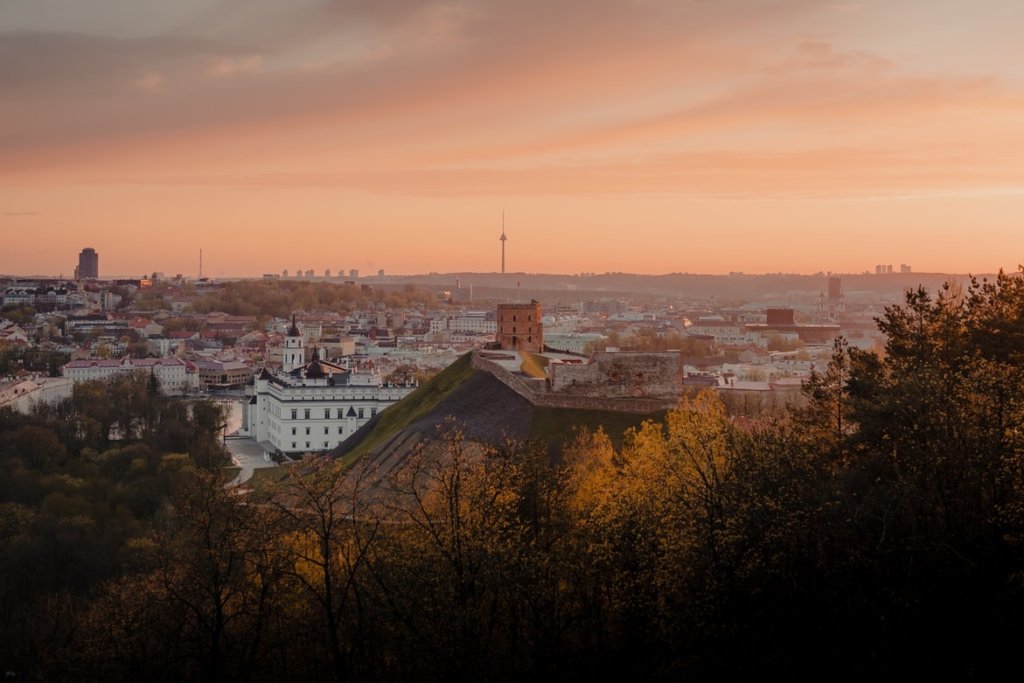
Renting an apartment is the most common choice for expats living in Lithuania. Like most countries, living in the capital or the larger cities will be more expensive than the smaller cities or suburbs. Compared to other EU-countries, you can find rental properties such as one-bedroom apartments, located in the city centre of bigger cities, for about 400-500 euros a month. You can expect to pay around 600-900 euros a month for a larger apartment. In three largest cities (Vilnius, Kaunas, Klaipėda) average rental prices fall between 200-400 euros/month for a studio flat.
If you want to cut down on your bills, you could find a roommate to live with where you split the costs. Keep in mind that utilities such as monthly electricity and water costs are usually not part of the rent.
When you find an apartment, you usually sign a letting agreement for 12 months, but in some cases, you can negotiate a shorter or longer lease with your landlord. Something to keep in mind is that it's also common to pay a deposit equivalent to 1-3 months rent before moving in, which will be returned when you move out.

You can look for apartments at websites such as https://domoplius.lt/en/ or ask around in Facebook groups for expats living in Lithuania and check groups created for finding apartments. You can even get helpful advice from your new employers who have a better insight into the city's accommodation situation. Or probably you can get a relocation package that includes an apartment from the employer!
The cost of living in Lithuania will be, in most cases, cheaper compared to other European countries, but it will depend on where you are from. In fact, Lithuania was voted one of the cheapest countries in Europe a couple of years ago. As in many other countries, you will spend a bit more money on accommodation and food if you live in the capital (Vilnius) or close to it. If you are located in a smaller city, you can often save money on expenses such as rent and groceries.
When it comes to food prices, a meal for two in a restaurant will cost about 35 euros, a cappuccino about 2.20 euros and you can get an imported beer (0.33 l) for about 3 euros. And when you visit a food market or grocery shop, you can find potatoes and rice by the kilo, both under 2 euros, as well as one-litre milk for 0,88 euro and a dozen eggs for 1,50 euro.
Cost of living also includes the internet in your apartment and money to spend on your health and spare time. In Lithuania, you can get an internet subscription with unlimited data for as little as 10 euros a month. If you want to join a gym, membership will cost 29 euros a month, depending on the gym, and if you want to visit the cinema, a ticket is 7 euros.
| Vilnius - Lithuania | |
| Groceries | |
| 1 kg oranges | €1.31 |
| 12 eggs | €1.7 |
| 1 kg potatoes | €0.48 |
| Restaurant/cafe | |
| Beer (0,5 l) | €3.5 |
| Meal for 2 at restaurant | €42 |
| Cappuccino | €2.34 |
| Sport & Leisure | |
| Gym membership | €33 |
| Cinema ticket | €8 |
| Public transport | |
| Single ticket bus | €0.95 |
| Taxi (normal tariff - 1km) | €0.7 |
| Average salary | €1,100 |
In Lithuania, you can drive a car with a European driver's license as long as it's not expired. Like most countries in Europe, the country has right-hand traffic, so if you are an experienced driver, you will not run into any trouble with forgetting what side of the road to drive on! Lithuania is a delightful country to explore on four wheels, with its abundance of scenic lakes, forests and castles. The sand dunes of the Baltic coast are awe-inspiring! Although Lithuanian roads are among the best in Eastern Europe, the traffic conditions might differ a bit from what you might be used to since Lithuanian drivers are known to be a bit careless at times.
If you're not driving, the cities have many public transportation options to choose from. The most common ones are buses or trolleybuses where you can buy a single trip ticket or a top-up card to use for travels. The Lithuanian intercity public transportation is cheap but relatively slow. Keep in mind that some towns beside significant roads have two bus stations: one downtown for buses terminating there and another on the road for the passing-by express buses.
Buses between the main cities are very frequent, with Vilnius-Kaunas buses leaving each terminal station every 15 minutes. If you go from one small town to another, connecting through a larger city might be wise. A bus ticket between these two main cities costs only 8€, and you can get it online or at the bus station.
Although Lithuanian railroads are not on par with those in Western Europe, you could also travel between the cities in Lithuania by train. Between Vilnius, the capital, and Varena, Šiauliai and Klaipėda, there is a connecting rail network operated by LG Keleiviams trains. Since most bigger cities are about 1-2 hours away from Vilnius, it can be the perfect weekend activity!
You also have the opportunity to rent a bike or a scooter from many places and get around this way. Bicycle paths are prevalent in the seaside, resorts, and national parks but may be extremely sporadic elsewhere. If you need to order a taxi or Uber, these will be fairly cheap, especially compared to other EU countries.
Across all Lithuania, you will find many interesting places to visit and explore. There are many relics of the Soviet period, such as bunkers and museums, but you will also find many more in this country, including beautiful churches, monasteries, and palaces.
Once you are settled in and ready to explore, there are many nice settings to feast your eyes upon. For example, you could start in Vilnius Old Town, one of UNESCO'S World Heritage Sites, which you will soon understand why. It is hard not to fall in love with its spectacular architecture and charming cobbled streets. You can also squeeze in a visit to the Gediminas Castle Tower, which is situated 48 meters above the city of Vilnius. Once it's time to take a rest, the cafés and pubs in the city create a cosy and magical atmosphere that you will especially look forward to in winter! They even say: "If there is no cafe in Vilnius every five minutes, it means you are not in Vilnius anymore ".
If you are interested in Lithuania's history and background, a good idea is to visit Grūto Parkas, a park and national centre. Here you will find relics and sculptures dating back to when the Soviet Union was in control of the country. If you are more into art, the country presents an extraordinary and unique face of architecture. For example, in Kaunas, you will find most modern and contemporary buildings, which contrast with the fairytale environment in Vilnius, the baroque attitude of the Pažaislis Monastery or the magnificent Trakai Island Castle, the mysterious Gothic residence of the Lithuanian Grand Duke.
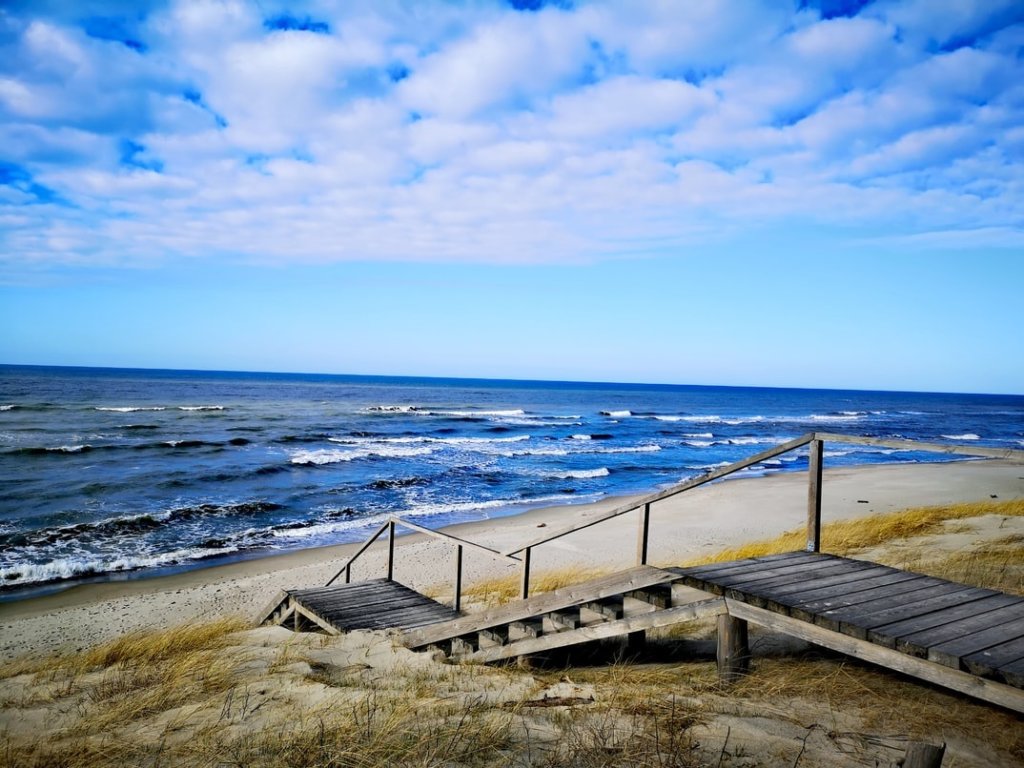
In Lithuania, nature is everywhere. Another park that could be worth a visit is the Curonian Spit National Park in Neringa. Not only can you enjoy the beautiful surroundings here, but you will also find a spa with many healing treatments, which include minerals from the Baltic sea. On the other hand, the country's seashore stretches for 90 km, with numerous Blue Flag beaches (Palanga and Šventoji are worth visiting!). This means - there are plenty of water sports and activities people can practice! One of the most peculiar ones is birdwatching. Lithuanian skies contain the most active stretch of the Baltic migration flyway, which is considered among the largest in Europe and around the world. Probably you will find your new hobby? If you want to try, Nemunas Delta Regional Park is the place to go.
Last, there is always something going on in Lithuania, even in winter. The country defines itself as the country of theatre and jazz festivals. The cities reverberate with good stories and music, setting the joy of creativity free. The Sirenos Theatre Festival or the Vilnius Jazz Festival are two of the many options you will find.
Lithuania has about 60,000 foreigners from all over the world living in the country with a residency permit. So there is an excellent chance of finding other expats if you want to get in touch with people from your home country. One option is joining the Facebook group Foreigners in Vilnius to connect with others. At the Migration information centre (MIC) “I Choose Lithuania”, you can also find other options for expats looking to connect with each other, plus additional information and help to start your journey in the new country.
Lithuanians are also perceived as reserved, individual and tight with their families. In the beginning, it might feel impossible to get to know them in front of this passive, indifferent attitude. But don’t get fooled by that. It takes time for them to open up to other people but once they feel comfortable, they will even smile at you and tell their life stories! They are also known for their intelligence, the presence of religion among the older generations, and their love of basketball. So if you are a big fan of this sport, you can be sure you will make friends in any pub or bar!
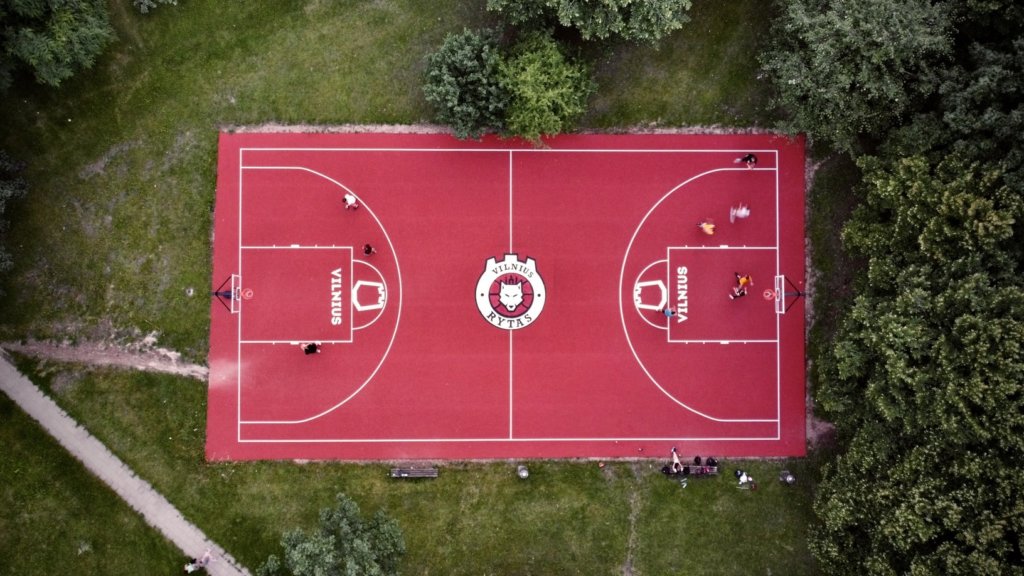
The official language at an international company in Lithuania will be English. But if you are interested in learning some Lithuanian before you arrive, the locals will really appreciate it! Here are some basic phrases:
In recent years, Lithuania has become a more popular choice for job seekers from the EU. Thanks to the country’s growing economy, the number of expats choosing to relocate and build a future has been steadily rising. The main job industries where expats find a job are:
Working conditions
Once you sign a contract you’re formally employed in Lithuania, and unless you work in shifts your work week will be 40 hours, from Monday to Friday.
You can have overtime but a work day should not exceed 12 hours. You also have the right to four weeks of annual paid vacation.
According to the Labor Code, the probation period can be established in an employment contract. The maximum period is 3 months, but if requested by the employer, this limit can be increased to 6 months. This could also be decreased if both parties agree.
Employees are entitled to paid sick leave for up to 6 months of illness (120 days). For the first two days of sickness, employees receive between 80-100% of their pay from their employer. From the third through the seventh day, employees are eligible for 40% of their pay. After that, the State Social Security Fund pays 80% of the employee’s salary.
Resignation notice
If you plan to leave your company, you will be asked to work a notice period. The length of your notice period will be specified in your contract. In most cases the notice period will be one month but if you have stayed with the company less than a year, it can be only two weeks.
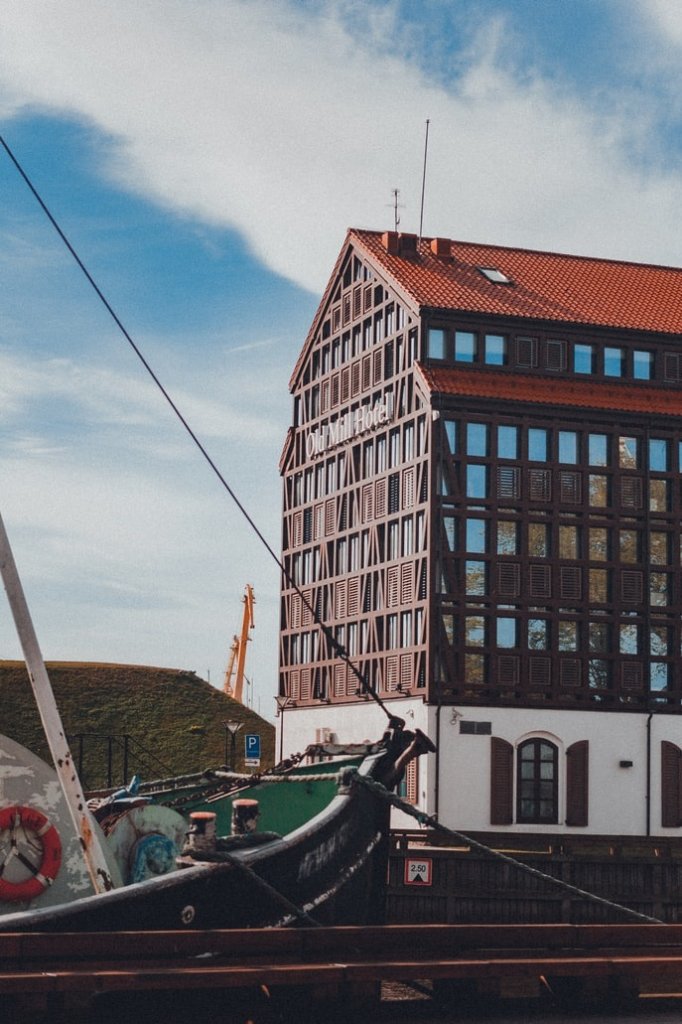
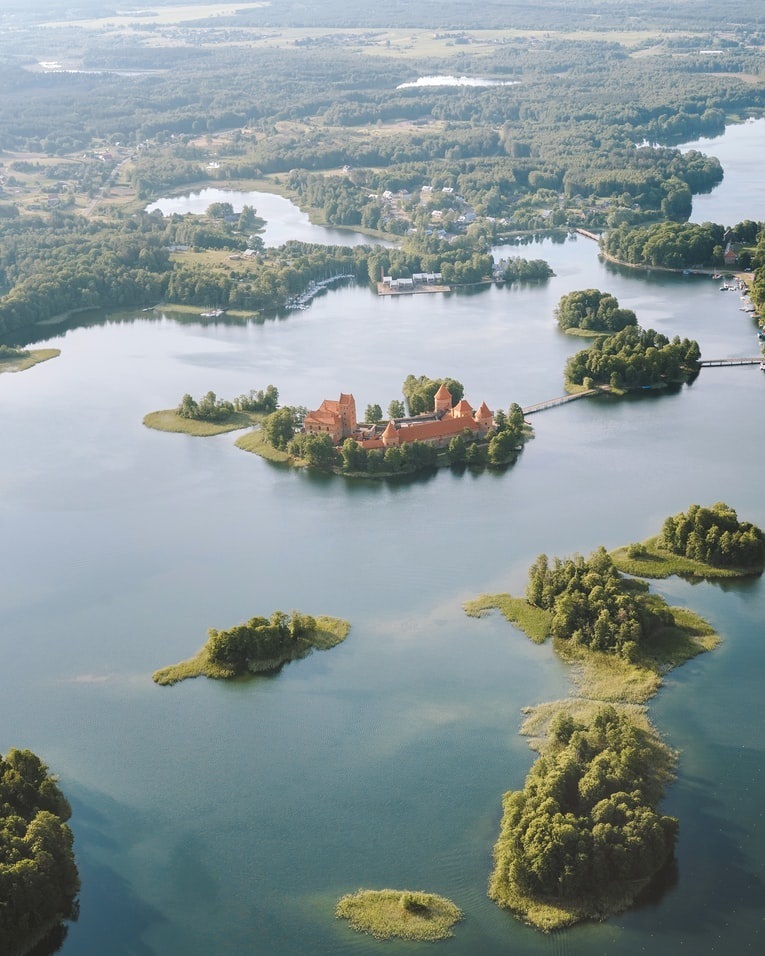
Salary and taxes
The average salary in Lithuania for 2021is around 1,700 euros a month and the minimum wage established by law is 642 euros a month. However, the salary will differ depending on which occupational category you are in. For example, a receptionist will make about 1000 euro a month and a travel agent can reach 1,400 euros monthly.
As of 2021, the official tax is 20% of your personal income and is deducted from your salary. The 20% rate is applicable if your yearly income is less than 84 average salaries in total. If your yearly income exceeds 84 average salaries, you will pay 32% in tax - this happens if you work for more than 1 employer. The standard rate of social security contributions is 21.27%, from which 1.77 percent is employer’s part and 19.5 percent is employee’s part. Additionally, 2.1/3 percent is withheld from the gross employment income of an employee participating in certain pension accumulation plans.
| Type of insurance | Paid by employer | Paid by employee | Total |
| Social security and mandatory health insurance contributions | 1.77% | 19.5% | 21.27% |
| Optional additional contributions for pension accumulation plan | 0% | 2.1%/3% | 2.1%/3% |
| Total | 1.77% | 19.5%/21.6%/22.5% | 21.27%/23.37%/24.27% |
Lithuanians are known for being hard workers, and the general work culture is based on taking pride in the work you’re doing. Since the job market is a bit competitive, many workers will make a significant effort to progress in their career, so they will not take well to colleagues who are a bit more relaxed.
Apart from that, the general office environment in Lithuania is quite social, relaxed and respectful. Lithuanians generally speak softly, are good listeners, and are not very emotive speakers. It would be best first to address the people you work with by using their professional title and last name, but you can move on to a first-name basis when you are more acquainted. Another thing to think about is that you should try to keep eye contact when talking to people. This is a sign of respect. There isn’t always a mandatory office dress code, but always dress appropriately.
In Lithuania respect is the key, especially when respecting your and other people’s time. That is why everyone is expected to be punctual and come to meetings on time. This also helps everything to run on schedule. Hierarchy is still part of their business culture, but companies are becoming more flat thanks to junior generations. Lithuanians prefer face-to-face meetings, as it is essential to build mutual understanding relationships and like to turn business relationships into friendships.!
In general, work culture is dynamic, with increasing numbers of companies adopting innovative working methods and transforming their organizational culture. The emphasis lies squarely now on individuals doing everything they can to work more effectively and lead the best life they can!
Yes, work-life balance is taken seriously here. More and more companies offer flexible working hours, giving employees the freedom to start their day earlier/later. Regardless of the hours you’re assigned, the most important thing remains the same – being productive and delivering! In addition, they make Fridays shorter - by around 16h most people will have already started turning off their computers and going out to enjoy the weekend.
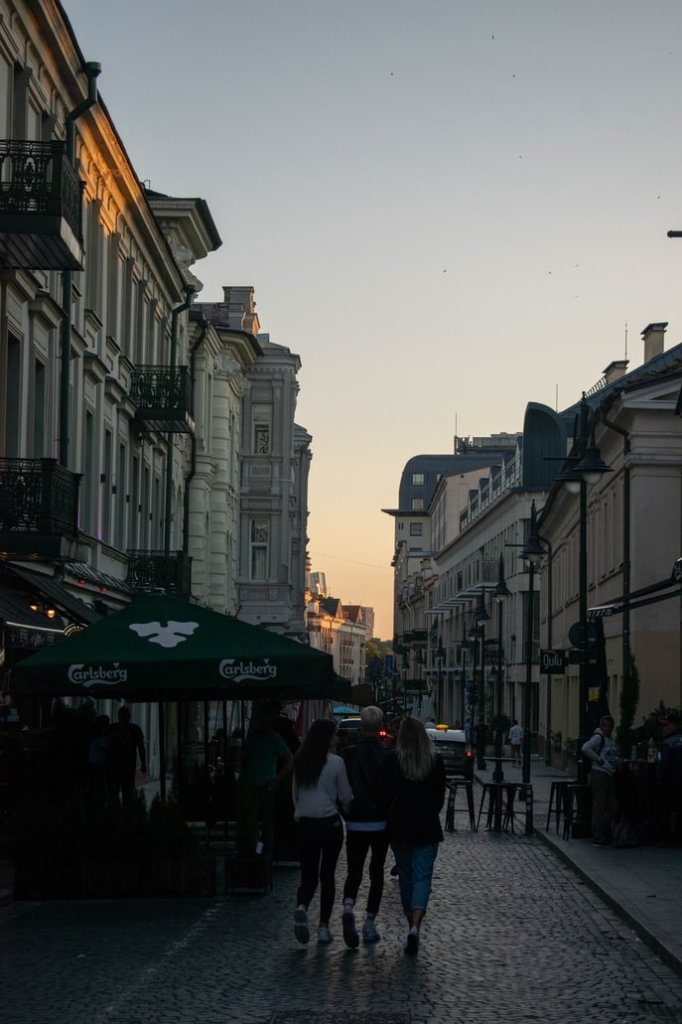
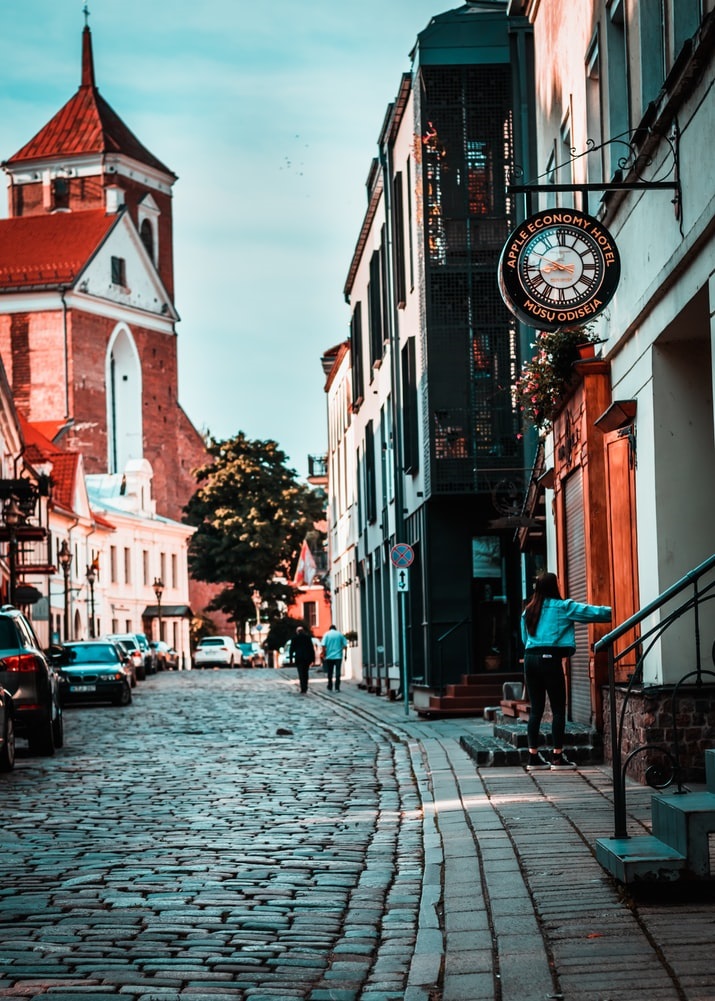
Expats as well as locals in Lithuania can find networking events with the purpose of sharing information and gaining knowledge of business, at eventbrite. By going to a networking event you can make connections that can be good to have in the future to help you progress in your career, learn more about your field of work, or just meet new people and expats in the same position as you.
Another option is to join a Facebook group for expats in Lithuania where you can also meet new people and organise events.
As an EU citizen you will not run into any hassle if you plan to move abroad to Lithuania. The standard procedure of relocating within the EU is that you can stay in your new country for 90 days without registering, and you will get by with your passport or ID card as identification. This also applies to Lithuania.
However, if you plan to stay longer, you will need to apply for a residency card, as a temporary or permanent resident. This must be done at the Migration department called MIGRIS, in Lithuania, and the documents you need to bring are:
You can start by emailing the migration department and letting them know you want to apply for a residency card. You will then need to make an appointment and go to your local office in person with said documents ready. The certificate must be issued no later than one month from the date of submission of the application.
In this residence permit/card, you will also get your TIN number, a 11-digit number, essential to pay your taxes and contribute to the social security regime.
Lithuania has an excellent modern state healthcare system, funded by the government through a national health insurance scheme. The standard of some local hospitals may still be poor, but the high doctor more than compensates for this to patient ratio – one of the best in the world! The city hospitals tend to be far better, and the general standard of healthcare facilities in Lithuania is improving as the government prioritises funding for health.
To get primary medical assistance in Lithuania, you need to register at a local healthcare centre or a local clinic called Poliklinika. Here you will get a GP that will handle your concerns, help you to write a note to your employers if you need to stay home from work and prescribe you medicine when needed:
If you prefer, you can also apply for a private healthcare option since there are private clinics available in many of the cities in Lithuania. Treatment in private hospitals is less of a struggle as compared to public medical centres. It has state-of-the-art equipment with highly qualified and multilingual staff, perfect for expats who do not speak Lithuanian or Russian. There is hardly any wait time, and medical insurance covers most of the treatment. In addition, you can find private clinics with an agreement with the National Health Insurance Fund. This eases the transition of the public to private healthcare system if you decide to continue a treatment using your healthcare insurance.
Opening a bank account in Lithuania is relatively easy, and there are a few branches to choose from. For example, the country offers some Scandinavian options such as Swedbank, Nordea and SEB, but you can also choose digital options such as Paysera, Mister Tango and Revolut!
When opening an account, you need to visit one of the banks in person and bring your passport and a residence permit with you. Luckily, Lithuanian banks don't ask for a massive pile of paperwork as a standard but reserve the right to ask for more complex documentary evidence if they think it's necessary. If you're opening a simple account, you will have to carry with you the following
After your application is finished and approved, your bank account should be ready within five working days, and a bank card can be delivered to your home address or your local bank.
When you choose which bank to use, you'll need to know what fees will be applied. Some of these charges will depend on your situation and the bank. For example, a monthly administration fee is applied, or an annual fee for holding a credit or debit card might be deducted from your account. It is also possible that you will have to deposit an amount to open your bank account officially. This amount differs among banks.
Even if this doesn't apply to you, every bank will charge for some services, such as withdrawing cash from an ATM or making international transfers. Even if these look pretty small, they can add up quickly! We recommend checking all this before choosing a bank to get your salary and manage your finances.
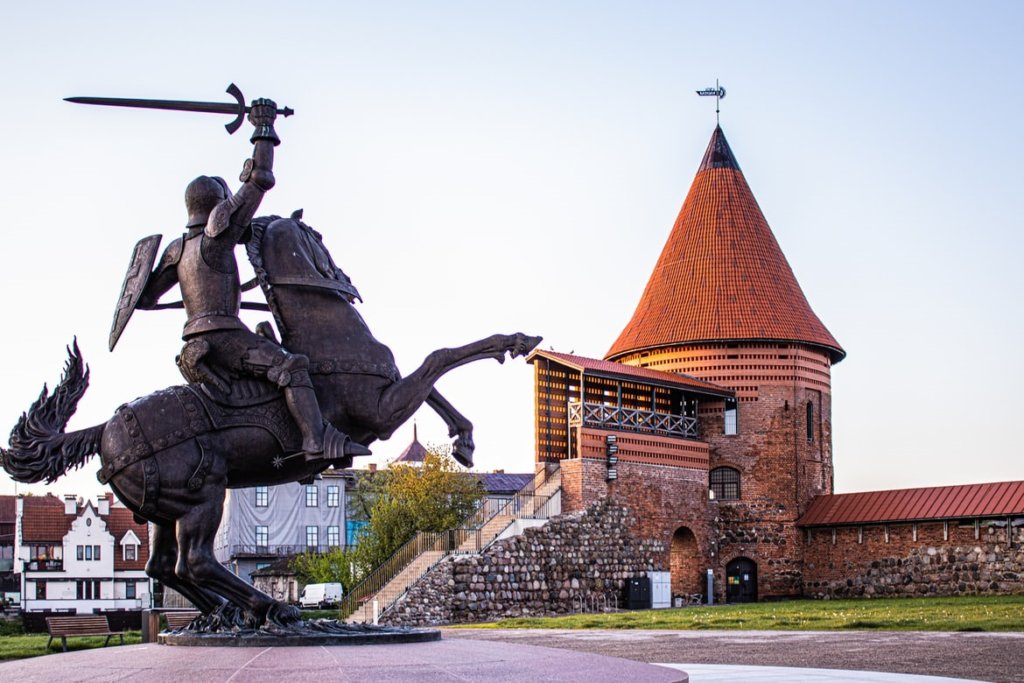
Lithuania may not be among the first destinations that spring to one’s mind, but there’s something that attracts many expats every year. Whether you’re an avid person ready to embark on your next big adventure or a talented professional looking to take your career to the next level, this country is the right place for you.
Indeed, Lithuania should be in the radar for those that want work-life balance, a low cost of living, and being surrounded by natural beauty. Here there are endless amounts of things to discover: from the magnificent blend of Soviet architecture to the charm that radiates from its well-preserved parks and sandy beaches, some of them even considered a UNESCO World Heritage Site. The republic is also referred to as the jewel of Eastern Europe - because of its mix of affordable lifestyle, abundant leisure regardless of your hobbies, and the progressive economy, thanks to the startup scene’s growth.
So if the thought of living and working in Lithuania attracts you, why not check out some of the job vacancies that we offer in the country here at Workwide Recruit!
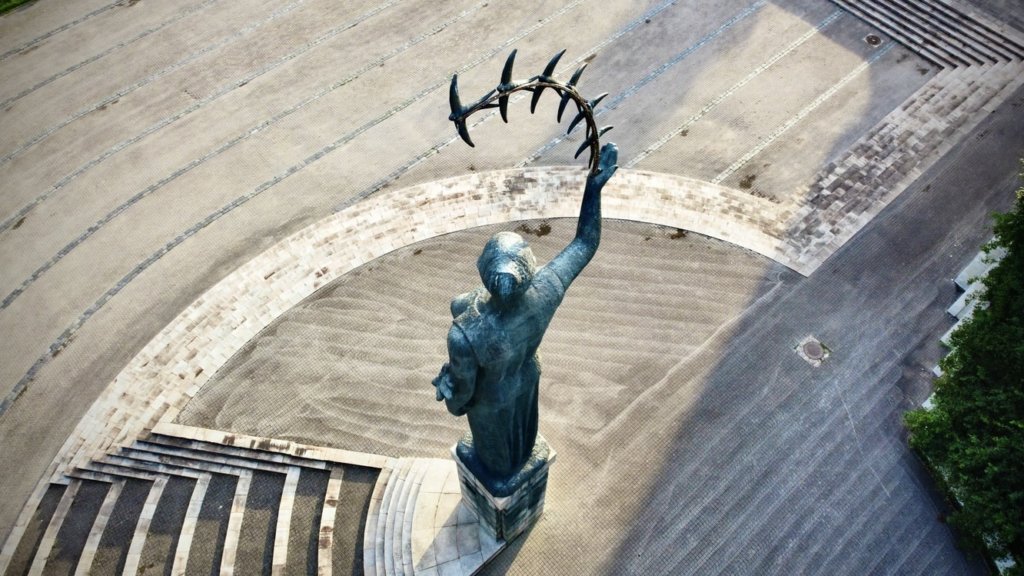
Relocating abroad is an exciting journey that opens up new opportunities, but it also comes with its own set of...
Read moreThere’s great comfort in connecting with other expats who can share their experiences from the destination you’re considering because every...
Read more
